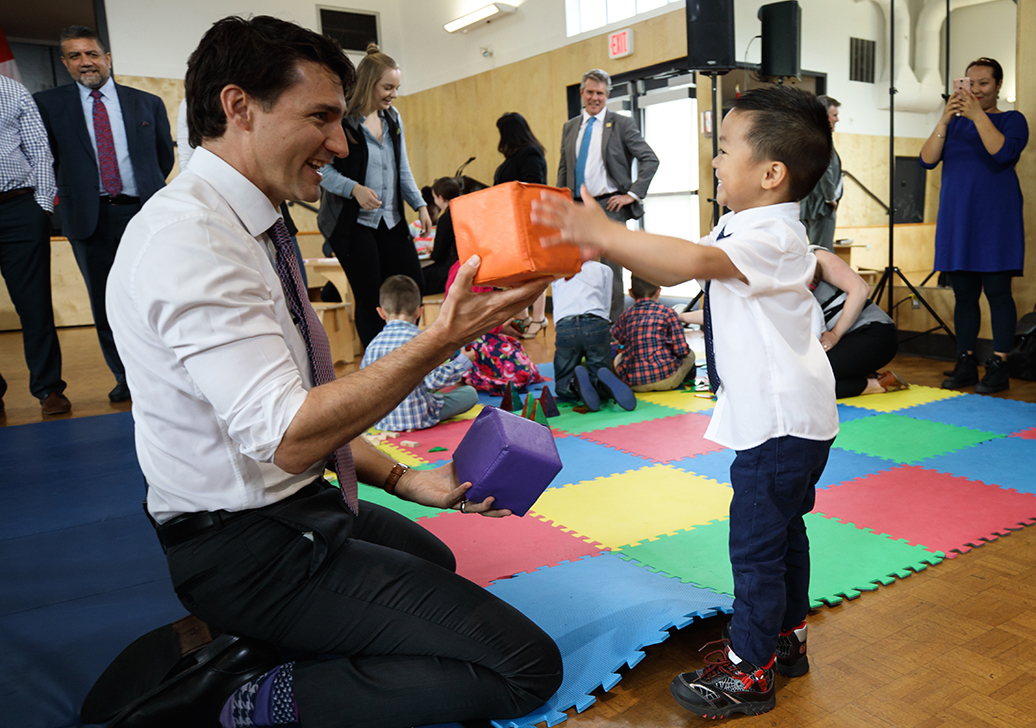The federal government’s recently announced national child-care framework is just another misstep by a government continuously slow to deliver on its promises, says Robyn Benson, president of the Public Service Alliance of Canada (PSAC).
On Monday, the federal government announced it had reached a multilateral agreement about child-care funding with the provinces and territories. The agreement would invest $7.5 billion over the next 11 years to support providing child-care spaces for children under the age of six.
Quebec did not sign the agreement because it has universal, provincial child care. British Columbia has not signed because its new government is still being finalized.
The framework is a far cry from the kind of universal child care that PSAC, and many other unions, want the government to establish.
A universal child-care plan needs to work for all families. This framework doesn’t, said Benson.
The government wants provinces and territories to use the money to target families and children who are most vulnerable. This could include those who live in underserviced communities or have low incomes. It could also include single-parent families, parents who work non-standard hours, or families with children who have disabilities.
The first agreements are for three years and are expected to be signed within the next few months. In total, the government plans to spend $1.2 billion over the next three years on child care.
Provincial and territorial governments will develop action plans about how to use the funds received. According to government information, the federal government will post details of the bilateral agreements on a government website.
This $7.5 billion includes $100 million for Indigenous child care that was announced in the 2016 budget. Another $100 million is earmarked for innovation in child care, with another $95 million to be used for collecting data about child care across Canada.
The government is also working on developing a separate Indigenous framework for early child care.
Benson said PSAC is “very disappointed” in the announcement. The union will continue to lobby for increased child-care funds. It will also ask Prime Minister Justin Trudeau “why he continuously does not keep his election promises,” said Benson, noting the government’s decision to not pursue electoral reform is another broken campaign promise.
Mark Hancock, president of the Canadian Union of Public Employees (CUPE) said in a release that all families struggle to afford child care. “It’s important that we build a public and not‑for‑profit system everyone can access — like public schools or health care,” he said in the statement. “This way no infant or child will get left behind.”
Siobhan Vipond, secretary-treasurer of the Alberta Federation of Labour (AFL), called the agreement a “missed opportunity.” While the funding could be used to help expand Alberta’s project of $25 child-care spaces, the framework “doesn’t show the national leadership needed to help provinces create a truly universal system. It will only address a small fraction of the need,” she said in a release.
Unifor also harshly criticized the announcement, saying in a press release it was based on “inadequate” consultation. In the release, union president Jerry Dias questioned whether it’s good to have each province and territory develop the specifics of how funds will be spent, warning that could lead to variances in service across the country. “This random hodgepodge of funding for child-care spaces is more expensive than a universal system and it isn’t good for children or parents,” Dias said in the release.
Unions have said they will continue campaigns for better child care across Canada.
Meagan Gillmore is rabble.ca‘s labour reporter.
Like this article? rabble is reader-supported journalism.




